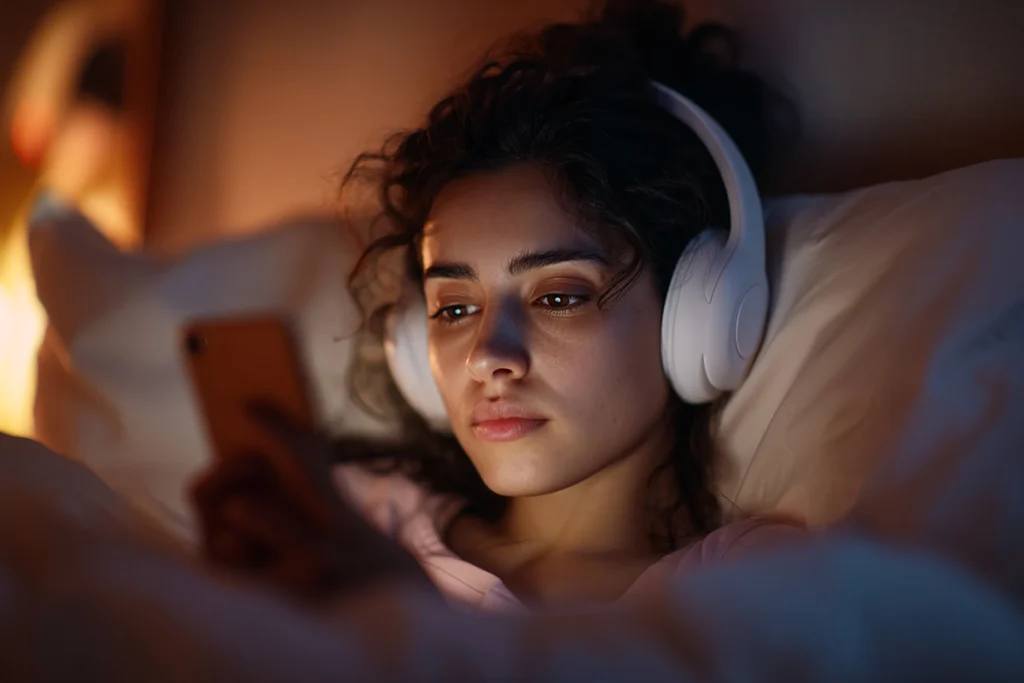In the spring of 2020, college life was abruptly paused due to the coronavirus outbreak. Higher education leaders were forced to close college campuses and pivot to online learning, causing increased mental health issues in students. With unemployment rates soaring and social interactions becoming almost non-existent, stress levels were at an all-time high.
Although a return to normalcy is still in the distant future, fall 2021 looks significantly different than Spring 2020. With COVID-19 vaccines more readily available across the country, schools strategized a return to campus in the fall. But, how are students and faculty feeling now versus last year at the beginning of the pandemic?
College student mental health and stress statistics in 2020
From May 29 to June 3, 2020, TimelyCare conducted a nationwide survey of undergraduate students enrolled at two and four-year institutions regarding college students’ experience with mental health and telehealth usage during the impact of COVID-19 (with 502 responses).
Key findings from the survey include:
An overwhelming majority of college students (85%) experienced increased levels of stress and or anxiety during COVID-19.
Despite the increase in stress and anxiety, only 21% of students surveyed sought emotional support by talking in person or via telehealth to a licensed counselor or behavioral health professional.
75% of students are open to utilizing telehealth to receive mental health care, with 20% of students indicating that they “definitely would” consider using telehealth for mental health support.
A 2020 Stress in America report conducted by the American Psychological Association (APA), found that more than 8 in 10 Gen Z adults felt they could’ve used more emotional support in the past 12 months. Additionally, in a study published by The Harvard Medical School of over 67,000 college students, three out of four students reported experiencing at least one stressful event that led to mental health issues, suicidal thoughts, or self-harm over the past year.
“I am home all the time now, so I’m stressing about the eventual return to social situations,” said a 21-year-old male student in New York.
“I have fear about how COVID-19 has impacted the upcoming presidential election,” said a 20-year-old male student in Florida.
“Separation from family is causing me stress and anxiety,” said a 20-year-old female student in Minnesota.
The pandemic has made college students experience a wide variety of circumstances that have affected their mental health and well-being. With both the CDC and American College Health Association (ACHA) recommending that colleges and universities offer virtual services to support students on and off-campus now and in the future, telehealth has a vital role to play for campuses.
“The bottom line is this: Student mental health is suffering during COVID-19,” said Larry Moneta, nationally-known student affairs expert and former Duke University VP of student affairs. “Colleges and universities need to be ready with the appropriate resources in the fall to care for students, whether they’re on or off-campus.”
Click here to gain access to the full survey results, including:
- Top five causes of stress and anxiety for students
- Notable, region-specific causes of stress and anxiety
- Top five ways students are coping
- How students feel about using telehealth for emotional support
Discover how access to care improves campus health
Student mental health one year later
The availability of COVID-19 vaccinations made it easier to see the light at the end of the tunnel after nearly two years in the pandemic. However, the Delta variant of COVID-19 created another barrier for college students and institutions hoping for a normal school year. According to TimelyCare’s latest survey of more than 1,000 college students, six in ten (60%) are more stressed now than at the beginning of the coronavirus pandemic.
Here are key findings that revealed factors causing a significant source of stress and anxiety in college students:
77% of students said that the pandemic and new COVID-19 variants have increased stress, emotional distress, and anxiety for them.
64% of students are most concerned about the effect the pandemic will have on their social life. Other causes of stress come from physical health problems (61%), academic success and quality (54%), financial stressors or student loans (45%), and the ability to fully enjoy their campus (40%).
Nearly three out of four (72%) will seek emotional support during the academic year from friends, family members, counseling centers, or medical professionals to help with stress management and anxiety.
The survey also found that nearly half of students want their school to offer more virtual mental health services focused on their well-being, as well as increased social and academic support. The Anxiety and Depression Association of America (ADAA) suggests ways that students and schools can support re-entry anxiety to make the transition more comfortable and supportive when returning to campus.
With Spring 2021 enrollment down by almost 4%, higher education leaders cannot afford to go backward. Colleges and universities must consider many aspects of COVID-19’s impact when reopening institutions according to the American College Health Association (ACHA). Student health and well-being must be the main priority in higher education now more than ever. It’s imperative that schools offer accessible mental and health care services on and off-campus.
How telehealth can help support students
“Many of the health care needs of students can be well served, 24/7/365, through video and phone consultation,” said Moneta. “Certainly now, when direct contact with caregivers is to be avoided unless absolutely necessary, telehealth is an ideal solution. This is true for treating most colds, rashes, and stomach ailments, but is even more critical for mental health needs where multiple visits may be necessary.”
Telehealth can serve as an extension of on-campus resources for remote assessment of medical symptoms, medical triage, and mental health care. With Generation Z taking over college campuses, this group of digital natives is ready to access care in ways that are convenient for them. As the pandemic continues to impact mental health, colleges and universities will need to offer mental health services that adapt to students’ needs.
“During a time of isolation like the one produced by this pandemic, telehealth is an especially valuable way of providing emotional support,” said Dr. Jan Hall, executive director of mental health at TimelyCare. “In some situations, it is the students’ primary means for talking with a counselor. Telemental health providers can help students develop strategies for coping in this time of increased stress.”
TimelyCare provides mental health care that empowers students with strategies for managing stress and anxiety during COVID-19. As your campus makes plans for the semesters to come, contact TimelyCare to learn how telehealth can transform the healthcare equation for your college or university, and make a difference in the lives of your students.






